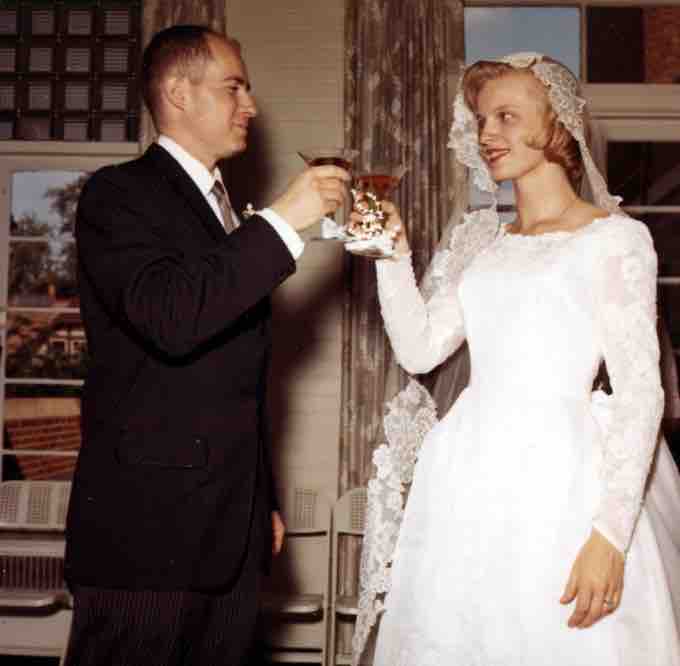Two types of speeches given in non-academic settings are entertainment speeches and persuasive speeches. Entertainment speeches may be given at a wedding or other social event. Persuasive speeches may be given as part of a political campaign or at a charity event.
Some examples of places where someone might be invited to give a non-academic speech:
- Rotary club
- Wedding
- Political campaign or event
- Charity event or benefit
- Acceptance speech of an award
- Reception or banquet
- Conference dinners or lunches
- Grievance Speech at a funeral
- Informative speech (keynote speaker)
- Interviews

A wedding toast
The toasts that are given at a wedding are an example of special occasion speeches.
Practical Tips for Entertainment Speeches
People often make the mistake of thinking they can improvise, or "wing," an entertainment speech by telling a few jokes or funny stories. In many cases, instead of being entertaining, the speech falls flat. Therefore, it is very important to prepare your entertainment speech. Some questions you should consider before giving an entertainment speech include:
- Is the content appropriate for the occasion?
- What do you know about your audience? Will they respond well to the content of your speech?
- Is the speech too short or too long? (Toasts, for example, are typically no longer than a few minutes.)
Practical Tips for Persuasive Speeches
In a political setting or money-raising campaign, a persuasive speech may be used to get audience members to change their attitudes or beliefs about a certain topic. In the case of fundraising, the speech is meant to convince people that the cause is worthy of a donation. To be as persuasive as possible, a speaker needs to understand some basic information about persuasion:
- Focus on the end result of your speech when preparing - all parts of your speech should focus on the end goal of your persuasive topic.
- Relate to and understand your audience - Start your speech by finding common ground with your audience, using humor or other similarities you might have. People tend to like people who are similar to them in some way.
- Chose your words wisely - focus on terms that have heavy emotional appeal like "freedom," "right," "wrong" and "liberty. "
- Identify why your persuasive topic is relevant to your audience- this will heighten interest and make your speech more immediately important. This is particularly important for persuasive speeches requiring a quick action by the audience.
Some additional resources on practical public speaking tips:
These additional resources provide tips on public speaking and include both videos and lists of tips to make your non-academic speech as engaging as possible.
- http://www.toastmasters.org/tips.asp - A public speaking society with tips on giving speeches.
- http://www.presentationskills.ca/Practical-Speaking-Tips.html - Speaking tips for professionals
- http://www.mindtools.com/CommSkll/PublicSpeaking.htm - Article on public speaking tips and improving confidence.
- http://www.youtube.com/watch?v=AykYRO5d_lI - Public speaking tips from Toastmasters (a public speaking society).